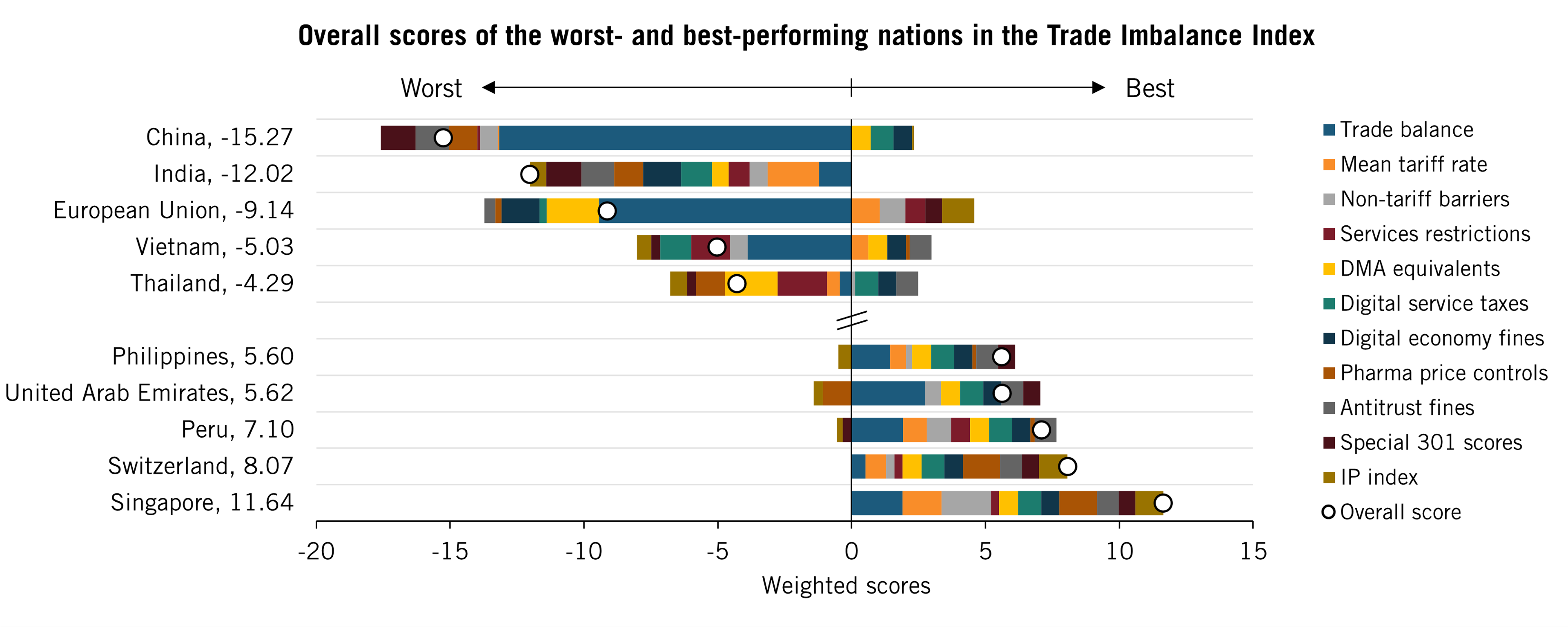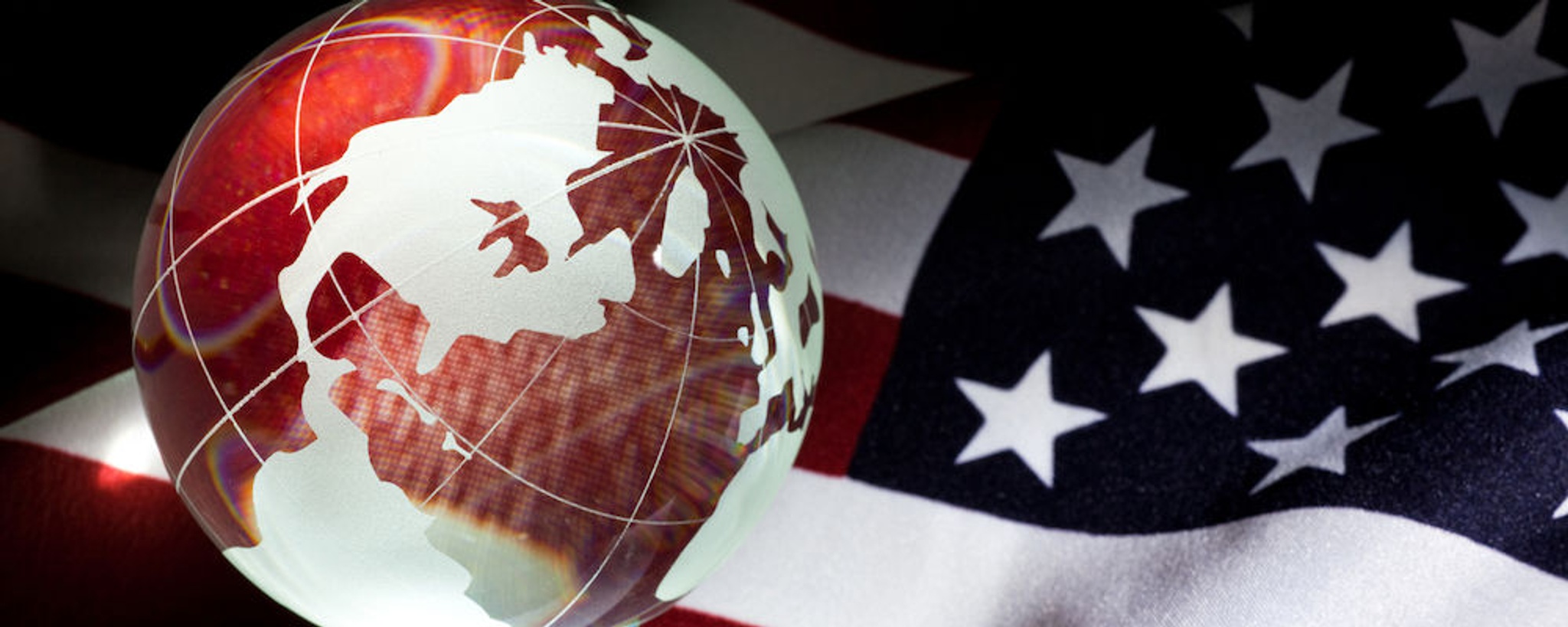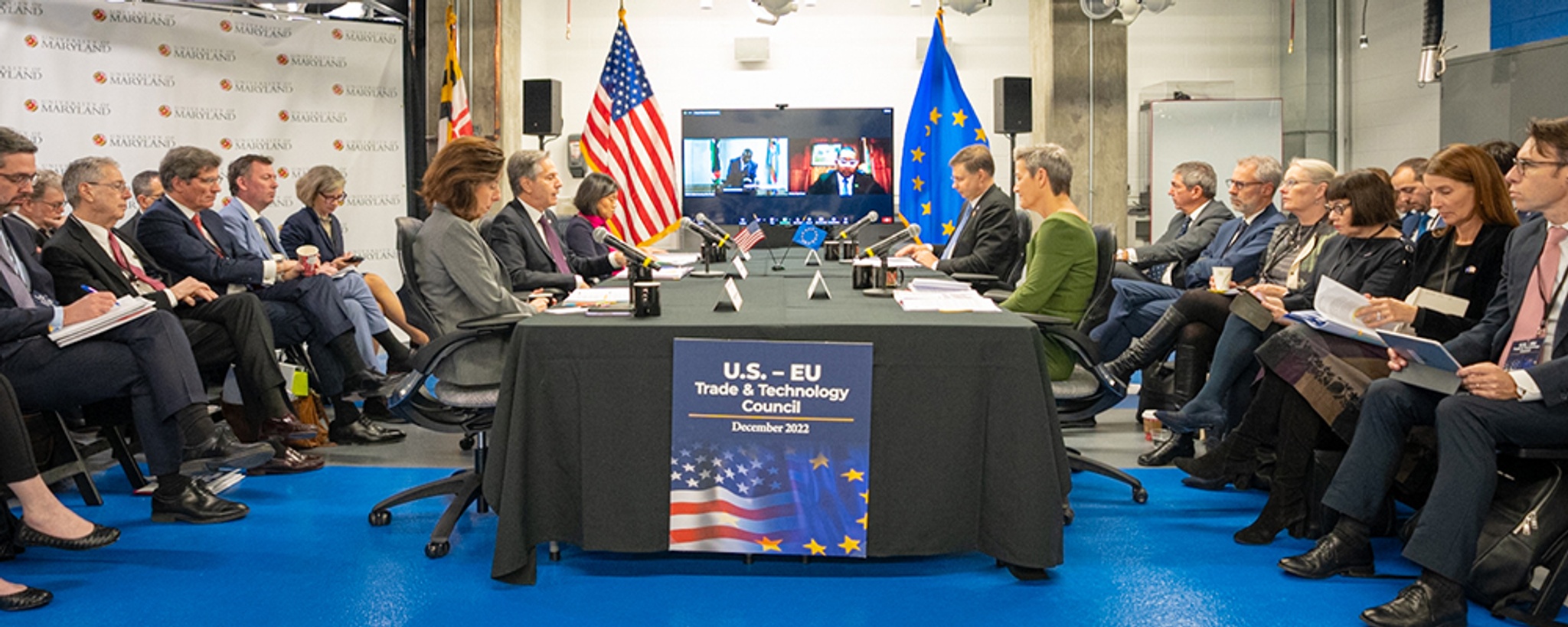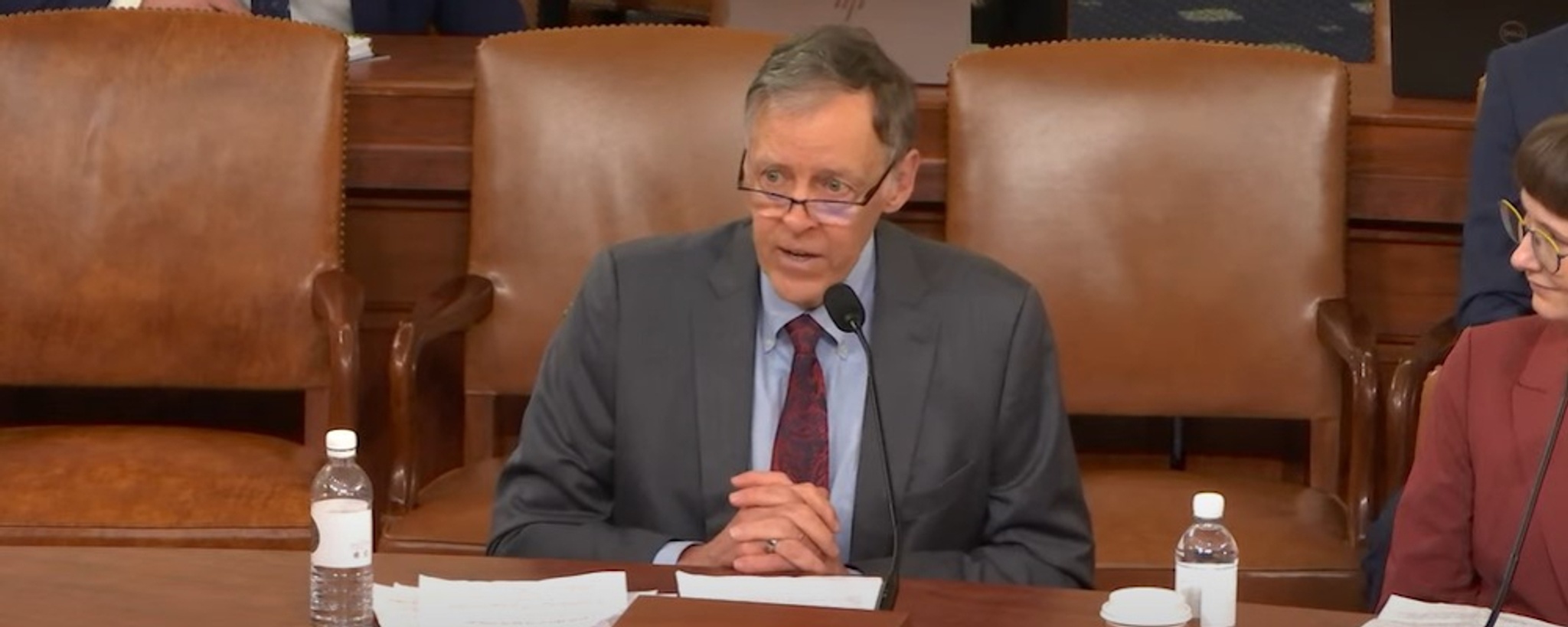Trade
Navigate forward to interact with the calendar and select a date. Press the question mark key to get the keyboard shortcuts for changing dates.
Navigate backward to interact with the calendar and select a date. Press the question mark key to get the keyboard shortcuts for changing dates.
Growing the innovation economy requires tight and deep integration of global markets—but with the critical caveat that this integration must come with strong commitments to openness and robust, market-oriented national competitiveness policies, not protectionist market distortions. ITIF's research focuses on how to promote robust trade, especially in innovation-based industries, and curb the spread of innovation mercantilism in all its forms.

Vice President, Global Innovation Policy, and Director, Center for Life Sciences Innovation
Information Technology and Innovation Foundation
Read BioFeatured
The Trade Imbalance Index: Where the Trump Administration Should Take Action to Address Trade Distortions

As the Trump administration seeks to rebalance America’s trade relationships, it should focus the most attention on countries where U.S. industries face the worst trade distortions and imbalances, and where the greatest gains can be achieved for the U.S. economy. China, India, and the European Union top that list.
More Publications and Events
May 28, 2025|Events
Creative Insecurity: Can Trump’s Trade Threats Jolt Canada Into Action?
Please join ITIF’s Centre for Canadian Innovation and Competitiveness for a virtual panel featuring top experts as they explore whether growing external pressures might serve as a catalyst for renewed policy ambition in Canada’s innovation ecosystem.
April 24, 2025|News Clips
Trump's Trade War Collides With EU's Moves on Big Tech
Axios featured ITIF’s projection of how retaliatory tariffs will impact U.S. ITA exports annually.
April 24, 2025|News Clips
ITIF: Retaliatory Tariffs Could Cut U.S. Tech Exports by $56 Billion
Inside US Trade featured Rodrigo Balbontin’s blog modeling the impact of retaliatory tariffs on ITA goods.
April 22, 2025|Events
How the Rise of Chinese E-Commerce Platforms Will Impact the United States
Watch now for a discussion with experts on e-commerce regulation, logistics, and policy as they explored the growth of Chinese e-commerce platforms, their impact on U.S. businesses and consumers, and how policymakers and industry leaders should respond.
April 21, 2025|Blogs
Rights and Wrongs: Trying to Understand Trump’s Trade Policy
Trump is right to confront unfair trade—but without strategic focus and allied cooperation, his tariffs risk handing the global economy to China.
April 20, 2025|Blogs
Fact of the Week: World Merchandise Trade Is Projected To Fall by 0.2 Percent in 2025
In the World Trade Organization’s (WTO) “Global Trade Outlook and Statistics Report for 2025,” the WTO predicts that global merchandise trade will decline by 0.2 percentage points.
April 17, 2025|Blogs
Europe’s GDPR Fines Against US Firms Are Unfair and Disproportionate
The magnitude of the total fines against U.S. companies is extraordinary. To put the amount in perspective, it is roughly the same as the GDP of Fiji. It could cover the cost of sending five rovers to explore Mars. It would be enough to build two new football stadiums in Washington, DC. It could even pay for every household in America to buy six dozen eggs.
April 16, 2025|Blogs
Trump Trade Negotiations: Embrace Strategic Trade, Not Autarky
The Trump administration will have to make a choice: Demand the removal of all foreign trade barriers or be strategic and focus on eliminating those critical to America’s techno-economic future.
April 15, 2025|News Clips
Revival of US High-End Manufacturing Must Rely on Global Markets, Not Tariffs
The Global Times mentioned Meghan Ostertag’s blog detailing the impact blanket tariffs have on intermediate goods.
April 15, 2025|News Clips
Trump's Tech Tariff Confusion
The Hill quoted Stephen Ezell who detailed the importance of stability and predictability needed for global markets to function.







